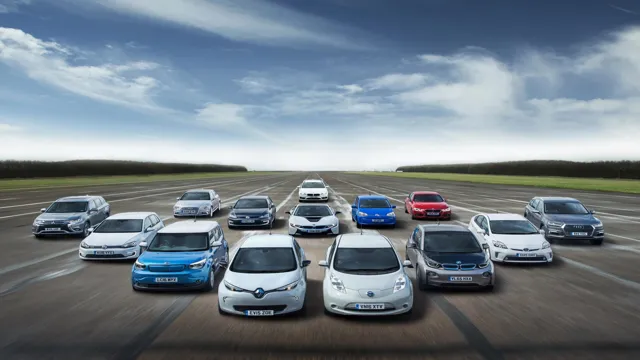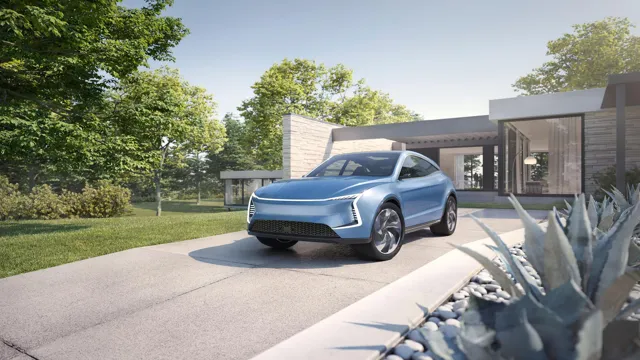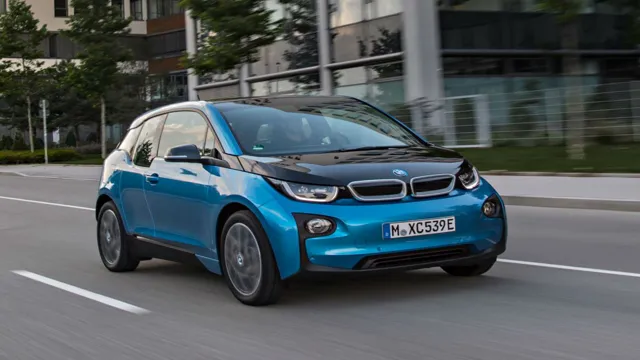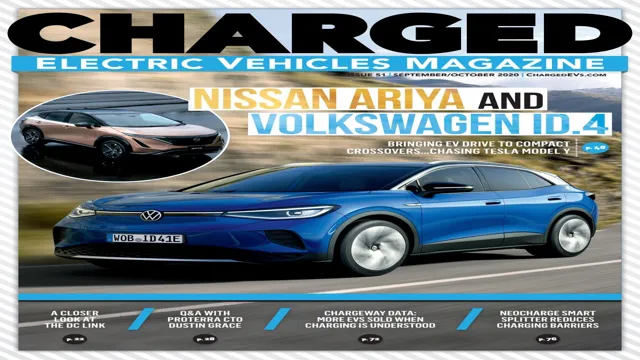The Shocking Truth: Uncovering the Root Causes of Fake News Surrounding Electric Cars
Have you ever come across a news article about electric cars that seemed too good or too bad to be true? Well, you’re not alone. In today’s digital age, fake news has become a pervasive issue, and the automotive industry is not exempt from it. While electric vehicles (EVs) are gaining traction globally, fake news is still a formidable obstacle to tackle.
But why is that so? For starters, EVs are still a relatively new technology, and many people are not familiar with them. This lack of knowledge makes them vulnerable to misinformation, and fake news producers take advantage of that. Additionally, the automobile industry is fiercely competitive, and some companies may resort to spreading fake news to discredit or harm their rivals.
Fighting fake news is crucial, especially when it comes to EVs. The transition to electric mobility is necessary to mitigate climate change, reduce pollution, and promote sustainable development. However, fake news can undermine these efforts by creating confusion, skepticism, and mistrust among individuals and governments.
The good news is that fighting fake news is not impossible. It requires a collective effort from various stakeholders, including automakers, governments, media outlets, and individuals. Some strategies that can help fight fake news on electric cars include fact-checking, source verification, media literacy, and responsible journalism.
In conclusion, fake news can be detrimental to the transition to electric mobility, and it is everyone’s responsibility to fight it. As consumers, we must be vigilant and seek reliable information from credible sources. As stakeholders, we must promote transparency, honesty, and accuracy in our communication.
By doing so, we can ensure a smoother and more successful transition to a sustainable future powered by electric vehicles.
The Problem
The problem of fake news on electric cars stems from various factors, including societal biases, commercial interests, and media sensationalism. As the electric vehicle market continues to grow, misinformation and propaganda regarding the efficiency, range, and sustainability of these vehicles have become increasingly prevalent. Some organizations spread fake news to advance their own agenda or suppress the transition to clean energy, while others may simply lack the technical knowledge to distinguish between facts and myths.
Additionally, misleading headlines and clickbait titles tend to grab more attention and generate higher engagement, leading to more dissemination of fake news. However, it is crucial to differentiate between accurate information and fake news to make informed decisions and contribute to a greener future.
Misconceptions and Myths
When it comes to mental health, there are a lot of misconceptions and myths out there that can create harmful stereotypes and prevent people from seeking help. One of the biggest problems is the idea that mental illness is a weakness, or that people who experience mental health challenges just need to “toughen up” or “get over it.” This couldn’t be further from the truth.
Mental health conditions are complex and often require professional support to manage. Additionally, there is a myth that mental illness is rare, or that it only affects certain groups of people. The truth is that mental illness is incredibly common, and can impact anyone regardless of age, gender, race, or socioeconomic status.
By recognizing and addressing these misconceptions and myths, we can work towards creating a more compassionate and supportive society for those with mental health challenges.
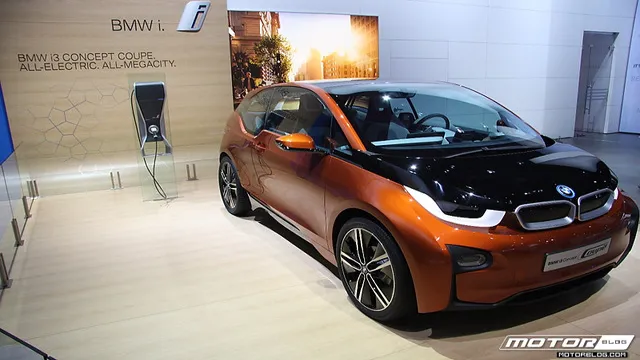
Impact on Electric Car Industry
One of the biggest problems facing the electric car industry is the lack of charging infrastructure. While traditional gas stations are ubiquitous, electric charging stations are still relatively rare, making it difficult for drivers to go on long journeys without the fear of running out of power. This has led to what is known as “range anxiety,” where drivers are hesitant to purchase electric cars because they’re not sure they can make it to their destination without needing to recharge.
The issue is compounded by the fact that there are different types of charging stations, with various charging speeds and connectors, making it difficult for drivers to know which station to use and how long they need to stay there. As a solution, companies are working to build more charging stations and develop wireless charging technology, which would allow electric cars to charge while in motion, akin to smartphones on wireless charging pads. However, until these solutions become more widespread, range anxiety will continue to plague the electric car industry.
The Reality of Electric Cars
Fake news on electric cars has been a growing concern lately, and it’s not doing any favors for the EV industry. One of the biggest misconceptions is that electric cars are not environmentally friendly. This couldn’t be further from the truth, as EVs emit zero emissions from the tailpipe.
Another fake news is that electric cars are not capable of driving long distances. However, the latest EV models can now drive over 300 miles on a single charge, which is more than enough for a typical road trip. There are also fears about the safety of electric cars, but they are just as safe as gasoline-powered cars.
Some critics have even gone as far as to claim that electric cars are too expensive, but the truth is that the cost of owning an EV has come down significantly in recent years. With federal and state incentives, the total cost of owning an electric car can be similar to that of a traditional car. It’s time to separate the facts from the fake news on electric cars and experience the reality of driving an EV.
Facts and Figures
Electric cars are becoming increasingly popular due to their environmentally friendly nature and low operating costs. In 2020, over 3 million electric cars were on the road worldwide, and this number is expected to increase to 27 million by 2030. The average range of an electric car is around 200 miles on a single charge, which is ample for most daily commutes.
Electric cars are also more affordable to maintain than traditional gas-powered vehicles, with lower fuel costs, fewer moving parts, and no need for oil changes. Although electric cars can be more expensive to purchase up front, there are government incentives available in many countries to offset this cost. As technology improves, the price of electric cars is expected to continue to fall.
Overall, the move towards electric cars is a step in the right direction towards a greener future.
Environmental Benefits
When it comes to electric cars, there is no doubt that they have a significant impact on the environment. With zero emissions, electric cars help reduce air pollution and combat climate change, making them an excellent alternative to traditional gas-powered vehicles. Moreover, they significantly reduce our reliance on oil and lower our carbon footprint, helping us move towards a more sustainable future.
Electric cars have improved considerably in recent years, with longer driving range and improved battery technology making them a more viable option for many people. However, it is essential to note that the environmental benefits of electric cars are only significant if they are powered by renewable energy. If the electricity used to power these cars comes from non-renewable sources, it defeats the purpose of buying an electric vehicle.
So, it’s important for us to focus on using renewable energy sources like wind, solar, and hydroelectric power to get the maximum environmental benefits of electric cars.
Cost Savings
When it comes to electric cars, the cost savings are undeniable. Not only do they save you money on fuel since they run on electricity, but they also require less maintenance and have longer lifespans. With fewer moving parts than traditional gas-powered cars, electric cars have fewer opportunities for something to break down.
This means fewer trips to the mechanic and less money spent on repairs. Additionally, since electric cars don’t have an internal combustion engine, they don’t require oil changes either. While the initial cost of an electric car may be higher than a traditional car, the long-term cost savings more than make up for it.
In fact, some studies have shown that over the lifetime of the car, electric cars can actually be less expensive than gas-powered cars. It’s no wonder more and more people are making the switch to electric cars.
Why Spread Fake News?
It’s no secret that fake news is rampant in our society, and unfortunately the electric car industry isn’t immune to it. So why do people spread fake news about electric cars? There are a few reasons. Firstly, there are those who have a personal bias against electric vehicles and want to discredit them.
This could be because they work in the fossil fuel industry or they have invested heavily in petrol cars. Secondly, some people spread fake news simply to gain attention or followers on social media. The more sensational the news, the more likely it is to go viral.
Finally, there are those who genuinely believe the fake news they’re spreading. They may have heard something from a unreliable source and haven’t taken the time to fact check it. It’s important to remember that spreading fake news has serious consequences and can have a negative impact on the electric car industry as a whole.
By being discerning and fact-checking information before sharing it, we can all help ensure accurate and balanced reporting about electric cars.
Political and Economic Motivations
Fake News has become a tool of propaganda, and it’s usually spread for political and economic motivations. Political actors use fake news to sway elections or to disrupt and discredit the opposition. They circulate false stories to manipulate the public perception, fueling outrage and spreading division among society.
It has also been observed that fake news is used by governments to distract from important issues or events happening in the country. Economically, fake news can be used to manipulate the stock market or to damage the reputation of companies. Someone with a vested interest in a particular company can intentionally spread false stories about the business to undermine its success and ultimately benefit their own interests.
In another case, malicious actors may circulate fake news to boost the stock prices of their preferred company. Regardless of the motivations behind it, fake news poses a significant threat to democracy and society as a whole. It erodes trust in the media, undermines public discourse, and promotes a culture of misinformation and confusion.
It’s crucial to be vigilant and to fact-check information before sharing it online or believing everything we see or read on social media.
Confirmation Bias and Social Media
Confirmation bias plays a significant role in the spread of fake news on social media platforms. People tend to consume content that aligns with their existing beliefs, values, and attitudes. Consequently, they are more likely to share articles and stories that confirm their preconceived notions and prejudices.
This phenomenon fuels the spread of misinformation, as people tend to ignore or dismiss anything that challenges their worldview. Moreover, social media algorithms provide tailored content that reinforces confirmation bias, making it difficult for individuals to access more diverse viewpoints. To combat the spread of fake news on social media, people need to be conscious of their biases and actively seek out alternative perspectives.
Additionally, media literacy education can equip individuals with the critical thinking skills necessary to discern credible sources and fact-check information before sharing it online. By promoting media literacy and combating confirmation bias, we can create a more informed and trustworthy social media space.
Fighting Back Against Fake News
There are various reasons why fake news on electric cars has been spreading like wildfire. First, the topic of electric cars is still relatively new and not well understood by the public, which has led to misinformation and exaggeration being shared online. Additionally, there are vested interests such as oil companies, automakers, and politicians who benefit from discrediting the electric car industry.
These interests may spread fake news to discourage people from buying and using electric cars or to promote their own agendas. Fake news spreads quickly on social media, where opinions and beliefs are shared freely without fact-checking. To combat fake news on electric cars, it is important to ensure that information is shared from reliable sources and fact-checked before being shared.
Additionally, educating the public on the benefits and potential of electric cars and promoting transparency in the electric car industry can help to dispel fake news and promote the truth.
Fact-Checking and Verification
Fake news has become a pervasive problem in today’s world, particularly with the rise of social media. Fact-checking and verification have become increasingly important in combating fake news and ensuring that accurate information reaches the public. One effective approach to fact-checking is to use established sources such as reputable news outlets or academic institutions.
This can help prevent the spread of misinformation and promote objective reporting. Another approach is to use fact-checking websites or apps that can quickly verify information and separate truth from fiction. By employing these strategies, we can start fighting back against fake news and ensuring that the public has access to accurate information.
Promoting Education and Awareness
In this age of information overload, one of the most challenging problems we face is fake news. The spread of misinformation can be dangerous, especially if it touches upon sensitive topics like healthcare or politics. As a community, we must remain vigilant and fight back against fake news by responsibly sharing information through verified sources.
We can actively promote education and awareness by teaching our friends and family how to spot fake news. For example, we can verify the source of the news, check for spelling and grammatical errors, and look for corroborating evidence. In doing so, we can avoid perpetuating harmful misinformation and promote responsible online behavior.
The fight against fake news may seem daunting, but every small step towards promoting education and awareness makes a difference.
The Future of Electric Cars
Despite the increasing popularity of electric cars, fake news about their drawbacks has also spread, causing confusion among consumers. One of the reasons behind this phenomenon may lie in the competitive nature of the automobile industry. As electric cars become more successful, traditional car manufacturers may feel threatened and thus promote misleading information.
Additionally, some media outlets may sensationalize certain events, such as fires, without taking into account the fact that electric cars are actually less likely to catch fire than gasoline-powered vehicles. Consumers seeking reliable information about electric cars should turn to reputable sources, such as industry experts and government agencies, rather than relying on rumors or speculation. Ultimately, electric cars have numerous benefits, including lower emissions, greater efficiency, and reduced dependence on fossil fuels, making them a promising technology for the future of transportation.
Innovation and Advancements
The future of electric cars is looking brighter than ever. With advancements in battery technology and ongoing infrastructure development, battery-powered vehicles are becoming more practical and efficient every day. Tesla, for example, is leading the charge in creating a widespread network of charging stations across the world, making it easier than ever to travel long distances without worrying about running out of juice.
Additionally, car manufacturers are developing new battery chemistries that can store more power with less space. Electric cars are also becoming more affordable as production costs decrease and government incentives encourage consumers to make the switch. Overall, the future of electric cars is not only eco-friendly, but also practical, efficient, and affordable.
With the ongoing innovation and advancements in this field, electric cars are sure to become the norm in the not-too-distant future.
Increased Adoption and Usage
Electric cars are the future of transportation, and with increased adoption and usage, we are moving towards a more sustainable future. One of the main advantages of electric cars is that they emit less pollution, which can help reduce our carbon footprint and improve air quality. As more people switch from gas-powered cars to electric cars, we will see a decrease in greenhouse gas emissions and a shift towards renewable energy sources.
Additionally, the advancements in battery technology mean that electric cars have longer ranges and faster charging times, making them a more practical option for everyday use. The future of electric cars looks bright, and with continued innovation and investment, we can expect to see even more exciting developments in the years to come.
Conclusion
Fake news on electric cars is like someone trying to convince you that unicorns are real. It’s just absurd. But unfortunately, in today’s world, fake news spreads like wildfire and can cause serious damage.
The reasons behind the spread of fake news on electric cars range from the fear of change to the financial interests of certain industries. Whatever the motivation may be, it’s important to stay informed and fact-check the information we receive. Don’t fall for the mythical tales of fake news and trust the evidence-based reality of electric cars.
“
FAQs
What is the motive behind spreading fake news about electric cars?
A primary reason for spreading fake news about electric cars is to create doubt and confusion among potential buyers, hindering the adoption of electric vehicles.
Which types of fake news are commonly circulated about electric cars?
Common types of fake news about electric cars are range anxiety, fire hazards, and doubts about the sustainability of electric vehicles.
Who benefits most from spreading fake news about electric cars?
The oil and gas lobby and automakers still vested in internal combustion engines generally benefit from spreading fake news about electric cars and slowing the adoption of cleaner vehicles.
How can consumers identify fake news stories about electric cars?
Consumers can identify fake news stories about electric cars by checking for credible sources, verifying facts with trusted sources. It is also essential to look for scientific research and expert reviews before making a decision.


